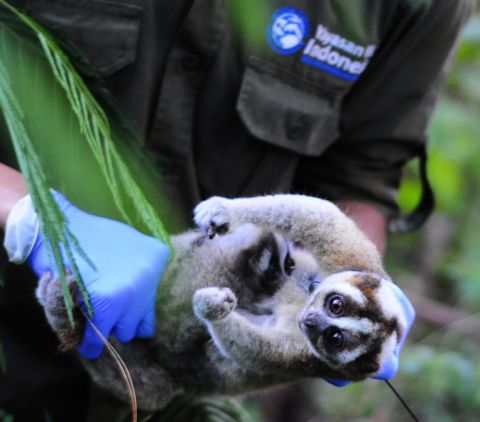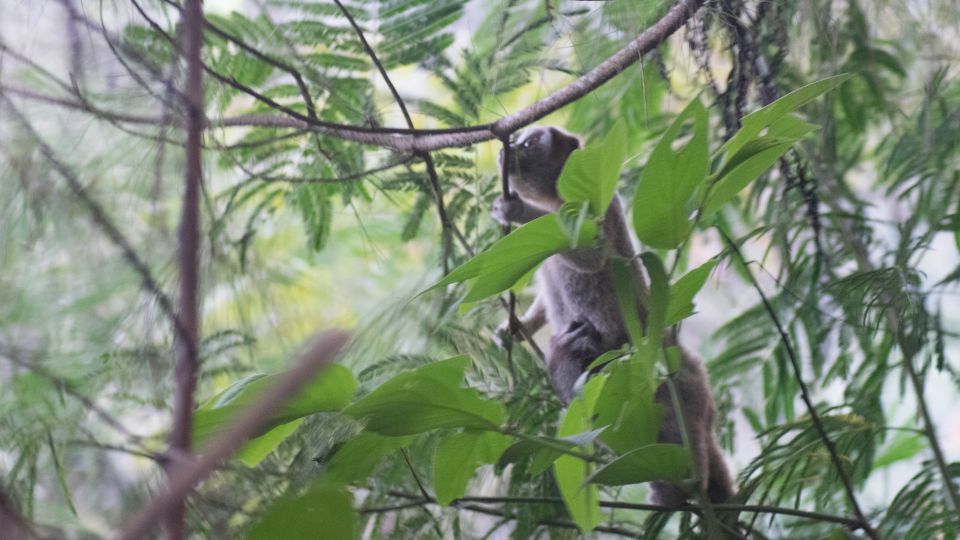
In January, Malabar was released in to the forest of Mount Sawal. Today we have an encouraging update regarding her life back in the wild.
Malabar is a Javan slow loris who was confiscated by the Nature Conservation Agency (BKSDA) in West Java in 2013, and underwent rehabilitation at our Primate Rescue and Rehabilitation Centre in Ciapus, Java.
A radio collar is fastened around the neck of each slow loris released in to the wild, so it can be post-release monitored. The collar emits signals that are captured by a receiver, which notifies us of the lorises’ whereabouts in the wild. Malabar has been monitored every night since her release for six months.
In August it was observed that Malabar had gained a lot of weight, and as she had been spending a lot of time with a wild male loris previously, the team suspected she was pregnant. For this reason the team decided it would be best to catch her and remove her radio-collar. Analysis of post-release data had shown that she had adapted well to the wild. As well as her socialisation skills, she was eating natural food and had established a stable home range.
On Saturday afternoon, September 3rd 2016, the team went to observe Malabar and found her already awake in the kaliandra tree, with her baby, clinging to her stomach. Our vet checked the physical condition and health of the baby, determining that both mother and baby were doing well. Malabar’s neck collar was then removed.

As soon as the collar was removed, Malabar moved quickly up the tree, getting as high as possible, so all our tracking team could see was a silhouette of Malabar with her baby clinging tightly to her stomach.
The witnesses to Malabar’s collar removal included volunteers trained by the Nature Conservation Agency area of Ciamis, staff from the Nature Conservation Agency in Tasikmalaya and IAR’s team.
Robithotul Huda, Supervisor of the Survey Release Monitoring team (SRM), said “It’s good news that Malabaar can breed naturally in the wild, as this is one of the best indicators of a successful rehabilitation process, and we are happy Malabar and her baby are contributing to the wild Javan slow loris population in Mount Sawal”.
The release of slow lorises is a result of the collaboration between IAR Indonesia and the Nature Conservation Agency of West Java, to release animals back into the wild and to maintain the wild population of Javan slow lorises, which are native to Indonesia. The Wildlife Conservation Area in Mount Sawal was chosen as a suitable release site because of its conservation status, which can ensure the safety of released lorises from any harmful human activities. IAR’s surveys also identified the area as having the biological diversity necessary for providing lorises with enough food and suitable shelter. Since 2014, 15 slow lorises from IAR’s rehabilitation centre have been released in to Mount Sawal.

